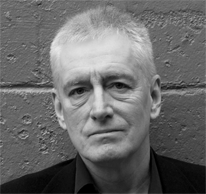
Ned Sublette is the author of three books (Cuba and Its Music, The World that Made New Orleans, and The Year Before the Flood), and is co-author of the forthcoming The American Slave Coast (Chicago Review Press). He is co-founder of the radio series Afropop Worldwide Hip Deep, heard over Public Radio International. He has written extensively about the Kongo presence in Cuba and New Orleans.
Sublette traveled to Mbanza-Kongo, the ancient royal seat of the Kongo kingdom, located in northern Angola. Mbanza-Kongo is one of the most significant spiritual sites, and one of the oldest surviving towns, in subequatorial Africa. It was in Mbanza-Kongo, located in present-day northern Angola, that the manikongo (Kongo king) converted his kingdom to Catholicism in 1491 – before Columbus, before the Middle Passage.
In Kongo belief, there are two worlds in constant contact: the world of the living and the world of the dead. The two are separated by kalunga, often conceptualized as water. The syncretism of African practice and Catholic symbol that began in Mbanza-Kongo traveled across the water, to everywhere slave ships went. We see it running through the histories of Haiti, Cuba, and Brazil, among others, in vodou, palo monte, and umbanda, all of which are alive and well today.
As a counterpart to his reportage from Angola, Sublette traveled to Haiti, where Kongo tradition remains distinct and identifiable within the complexity of vodou, and where the negotiation begun by the manikongo and the missionaries can still be seen and felt.